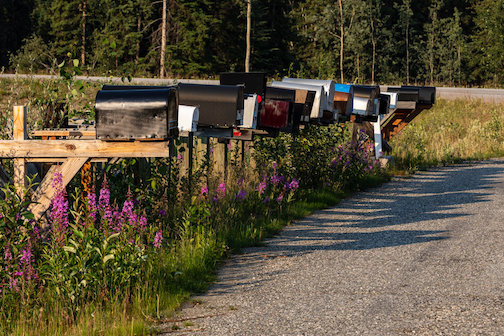Ballots will be in the mail tomorrow, April 27, for the special primary election for the temporary placeholder for Alaska’s congressional representative. The Division of Elections says it may take a few days for voters to receive them.
Alaska is conducting a special election to fill out the remaining term of the late Congressman Don Young. Since March 18, and likely until early September, Alaska is without representation in the U.S. House of Representatives.
The special election primary was made an all-mail election because the timing of the special election, which is required by law, is so tight, with the regular election for the same seat (and others) starting in August.
The primary for the special election will have 48 names on the ballot that will be sent to all 586,318 registered voters in Alaska. Ballots must be returned or postmarked by June 11 to be counted. That means voters will have about 40-45 days to vote their ballots and get them back to the division. The deadline to register to vote in the special primary election is May 12. If you’re already registered to vote, the division will be mailing the ballot at the address it has on file.
According to law, the special primary election for the congressional seat must be held on a date that is “no less than 60, nor more than 90” days from the vacancy of the seat, which was March 18. With Ballot Measure 2, the special primary is now a jungle primary, where the top four candidates — who could be from any party — advance to the special general. Because of other deadlines, such as the requirement to send military and overseas voters ballots 45 days in advance of the election, the Division of Elections needed to hold the election between June 11 and June 16, and chose June 11 as the date.
In August, the four who advance from the special primary election will appear on the main regular primary election ballot, where voters will face a separate section with candidates for the two-year seat. The candidates for the two-year seat may be different from the candidates in the section for the placeholder seat.
The special general election will be done via ranked choice voting on that ballot, while the regular primary, conducted at the same time, will be “vote for one” method. This mess of confusion has been brought to voters by Outside dark money that tricked them into believing Ballot Measure 2 was a good idea.
Whoever emerges from the special general election, which won’t be known until September, will serve out the congressman’s term until the swearing in of the new congressional representative in January.
On Wednesday, the Division of Elections will announce where absentee voting stations will be located, and will begin hiring bilingual absentee voting officials and outreach workers. There will be no polling stations on June 11, the final day.
Take a look at the ballot at this link:
